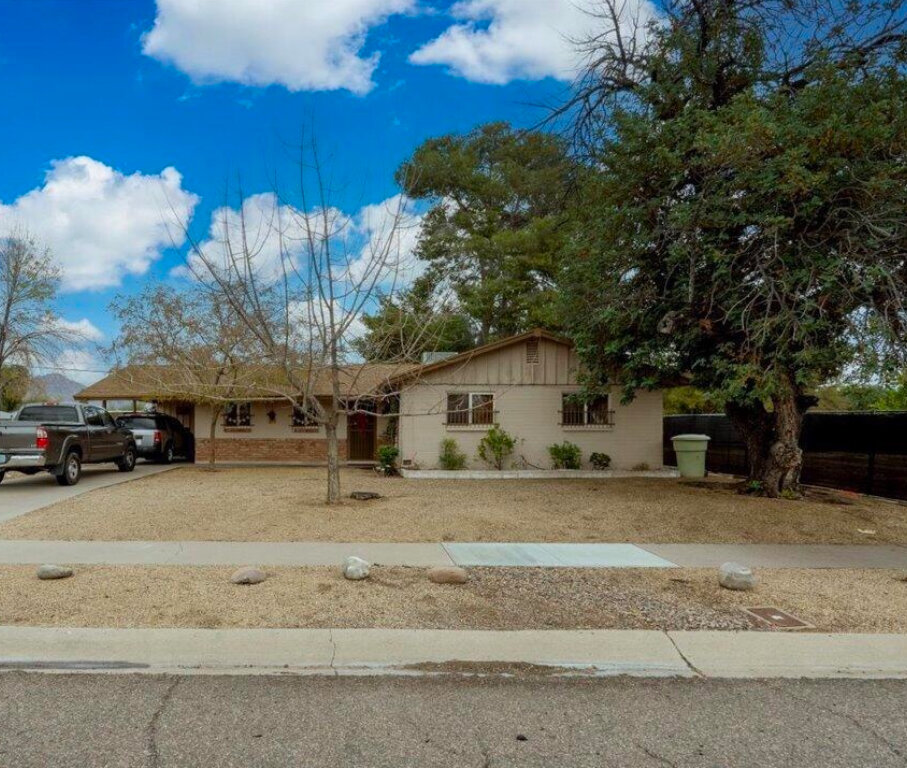
Can I Sell My House To Avoid Foreclosure?
Foreclosure House Sale In Phoenix, Arizona?

Facing foreclosure on your Phoenix home can be an overwhelming and stressful experience. Especially when compounded by financial hardship such as job loss, divorce, medical bills, or the death of a loved one. Many homeowners in this situation wonder if they can still sell their property to avoid the consequences of foreclosure. The fast answer is yes, you can sell a house in foreclosure in Phoenix, Arizona. However, the process requires quick action, and in most cases a lender will not foreclose on your house if you have an offer on your home but you must be in communication with your bank or lender. Working with specialized buyers like Patriot Flip can offer a fast home sale solution in Phoenix to stop foreclosure.
This comprehensive guide will walk you through the foreclosure process in Arizona, explore your options for selling a home in foreclosure, and provide valuable insights on how to navigate this challenging situation.
Table of Contents
- What is Foreclosure?
- The Foreclosure Process
- Can You Sell a House in Foreclosure in Phoenix?
- Options for Selling Your House In Foreclosure in Phoenix
- How Much Time Do You Have To Sell A House After Defaulting on a Mortgage?
- How Long Does it Take to Sell A Home in Foreclosure?
- Seven Steps to Sell Your House in Foreclosure in Phoenix
- Challenges in Selling a Home in Foreclosure
- Five Alternatives to Selling Your Home in Foreclosure in Phoenix
- Legal Considerations When Selling a House in Foreclosure
- Working with Patriot Flip to Sell Your House Fast in Phoenix
- Related Foreclosure Resources & Questions
- Conclusion: Act Quickly to Avoid Foreclosure in Phoenix
What is Foreclosure?

Foreclosure is the definition of a lender or mortgage company gaining possession of your house through a legal process. In a nutshell, the lender or bank is repossessing a house in an attempt to recover the balance of a loan from a borrower who has stopped making payments. After repossession, the bank typically sells the property to recoup their losses. This general consequences to the homeowner, include:
- Credit Score Damage: It could take up to 7-years to be able to apply for a new home loan. Or any type of loan, this could also affect your work depending on the career.
- Home Eviction: Losing your home is the most detrimental aspect of foreclosure, as now you are being displaced from your residence, and you have to start all over again to rebuild equity you worked so hard to establish.
- Deficiency Balance: A deficiency balance is where the sale proceeds are insufficient to cover the mortgage debt. In most cases the lender is now allowed to sue you in order to collect the remaining balance.
The Foreclosure Process
Arizona primarily uses a non-judicial foreclosure process, which means the foreclosure can proceed without court intervention if the mortgage agreement includes a power of sale clause. According to investopedia.com there’s 6 phases involved in foreclosure. To keep your house from reaching auction, you must understand the foreclosure timeline. Here’s a general outline of the foreclosure process in Phoenix:

Step 1: First Missed Payment
When you miss a mortgage payment, the lender may give you a grace period of 15 days. If you fail to make the payment during this period, a late fee will be added. More stringent lenders might also report the delay to credit bureaus, impacting your credit score.
Step 2: Notice of Default
If you continue to miss payments, typically for 30 days or more, you will be considered in default. Depending on the state, the foreclosure process can be either judicial or non-judicial. A judicial foreclosure requires court involvement, while a non-judicial foreclosure does not. Judicial states, such as California can take months and even years for a foreclosure process to take full affect, where a non-judicial foreclosure process can move very quick.
Step 3: Notice of Default or Foreclosure Lawsuit
In a non-judicial foreclosure, you will receive a Notice of Default (NOD) detailing the amount owed, including late fees and foreclosure costs. You will have 90 days to repay the amount due. In a judicial foreclosure, the lender files a lawsuit, and you must respond promptly to avoid a default judgment in favor of the lender. Whether Judicial or Non-Judicial having communication with your bank or lender is essential to avoiding a fast moving foreclosure process.
Step 4: Pre-Foreclosure Period
The period between receiving a Notice of Default and the foreclosure auction is known as pre-foreclosure. During this time, you can pay the amount owed, negotiate a repayment plan with the lender, or sell the property to avoid foreclosure. In fact in most situations, selling the home is generally the best option to avoid foreclosure and to take action against wrecking your credit.
Step 5: Notice of Trustee’s Sale

If the debt remains unpaid, the lender is required to publish a public Notice of Sale, announcing the foreclosure auction. This notice period can range from two to three months. It is still possible to sell the property during this time, but the urgency increases as the auction date approaches.
Step 6: Trustee Sale & Eviction
After the foreclosure auction, you will receive an eviction notice, and you must vacate the property. Residents of the property are given a few days at most to clear personal belongings and vacate the home. If you refuse to leave, local law enforcement may intervene.
Download Your FREE Stop Foreclosure Guide Below
Can You Sell a House in Foreclosure in Phoenix?
The short answer is yes, you can sell your house in foreclosure in Phoenix, Arizona. However, timing is critical. The best opportunity to sell is during the pre-foreclosure period, before the trustee’s sale is scheduled. During this time, you still have control over the property and can negotiate its sale.
Six Benefits of Selling Your House Before Foreclosure
- Avoid Credit Damage: A foreclosure can severely damage your credit score for up to seven years. Selling your home before foreclosure can help minimize this impact.
- Potential to Recover Equity: If your home has equity, selling it allows you to recover some or all of that value, which you would lose in a foreclosure.
- Avoid Deficiency Judgment: In some cases, if the foreclosure sale doesn’t cover the full amount owed, the lender may pursue a deficiency judgment. Selling the home can help avoid this situation.
- Emotional Relief: Selling your home on your terms can provide emotional closure and relief from the stress of foreclosure.
- Faster Recovery: Selling your home can help you move on more quickly and start rebuilding your financial life.
- Purchase Sooner: Most importantly, having the ability to make a new home purchase sooner better fitted for your current financial budget.
The overall point is to avoid foreclosure at all costs and pay what is owed to the mortgage company by selling the home. If the property is worth less than what the market is willing to pay for it, you could still face problems even after closing on the property. As we will discuss in the next section, a short sale would make the most sense.
Options for Selling Your House In Foreclosure in Phoenix

1. Traditional Sale
You can list your home with a local real estate agent and try to sell it on the open market. This option may get you the highest price but also takes the longest time, which may not be ideal if you’re facing imminent foreclosure.
2. Short Sale
If your home is worth less than what you owe on the mortgage, you may be able to negotiate a short sale with your lender. In a short sale, the lender agrees to accept less than the full amount owed on the mortgage.
Benefits of a short sale:
- Less damaging to your credit than a foreclosure
- May be able to buy another home sooner compared to foreclosure
- Potential for debt forgiveness
Challenges of a short sale:
- Requires lender approval, which can be time-consuming
- You may still be responsible for the difference between the sale price and the amount owed
- Can still negatively impact your credit score
3. Sell to a Cash Buyer
Companies like Patriot Flip specialize in buying homes quickly for cash, even those in foreclosure.
This option offers several advantages:
- Fast home sale in Phoenix: Cash buyers can often close in as little as 7-14 days
- Sell your house “as-is”: No need for repairs or renovations
- No real estate agent commissions or fees
- Guaranteed sale: No risk of contingencies and buyer financing falling through
While you may not get the full market value for your home, selling to a cash buyer can be the fastest and most certain way to avoid foreclosure.
Get An Offer Today, Sell In A Matter Of Days
Enter your email to access the property detail page and request a cash offer.
How Much Time Do You Have To Sell A House After Defaulting on a Mortgage?
A number of components go into how long you have before your house ends up at auction. First, is whether or not you live in a Judicial or Non-Judicial State. Second, depends on how eager the lender is to keep the process moving along and whether or not you have been communicating with the lender. Lastly, each state can have differing factors and state specific regulations.
An exact estimation of time, is difficult to define but in most situations, it takes between four months to a year to complete the entire foreclosure process. To get the highest offer possible, you want to act as quick as possible to properly market your home.
How Long Does it Take to Sell A Home in Foreclosure?
A common misconception is that a typical home sale is different from a foreclosure sale. Until a home facing foreclosure has a date set for auction, it will have a similar timeline as a non-foreclosure property selling on the market. Which means if the market is strong and moving quickly, and your home is marketed and priced correctly it will sell fast. As vice versa, if the market is slow and stagnant, it will take longer to sell.
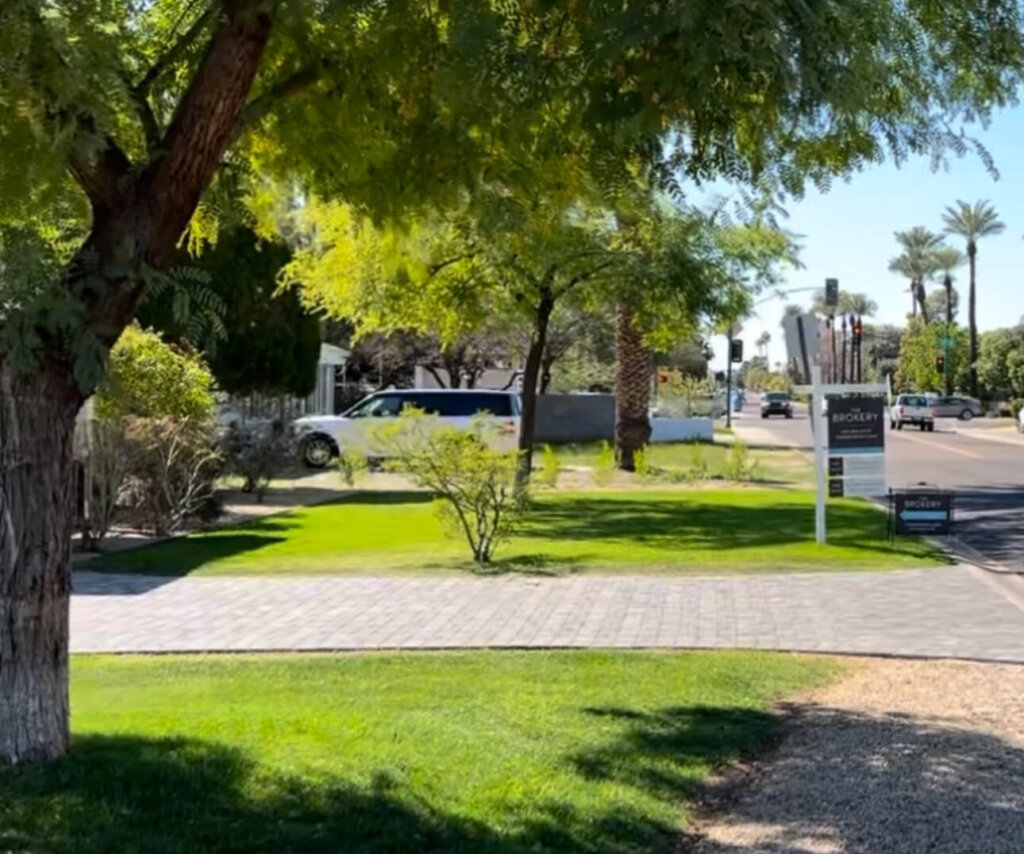
Important items to take into account, is the state, city, neighborhood, and condition of the home that is being sold. As well as the competence of the real estate agent marketing and selling your property. All of these items will significantly impact the sale of the house.
The process of a typical agent, is to determine the fair market value of your home, set a price, market the home, negotiate contracts, and close escrow.
The main difference when selling a house in foreclosure is that the lender or bank must be notified that you are selling it and that you have an offer in hand. This must be proved so the lenders don’t think you are just delaying the process of foreclosure.
Seven Steps to Sell Your House in Foreclosure in Phoenix
Now that we have established you can avoid or even stop foreclosure before the auction date. The main focus will be to sell the property. Here’s what needs to be done to sell a house fast in foreclosure, follow these Seven steps:
- Determine Your Home’s Value: The most accurate analysis will be an appraisal or use online tools to estimate your property’s market value. A real estate agent can also provide a comparative market analysis.
- Set an Asking Price: Based on the appraised value, set a price that covers the unpaid mortgage, interest, late fees, and real estate agent fees of 5-6%. It’s crucial to price it competitively to attract buyers quickly. Overpricing a home can extend the time on market by 87-days.
- Notify the Mortgage Lender: Inform your lender of your intent to sell the property. Many lenders prefer a sale over foreclosure as it involves less hassle and expense for them.
- Find a Real Estate Agent or Sell on Your Own: A qualified real estate agent can help market the property and negotiate with buyers. Alternatively, you can sell directly to a cash home buyer, which is often faster.
- Get an Offer and Negotiate: Accepting a fair offer quickly is essential to avoid foreclosure. Consider offers from cash buyers, as these transactions are typically faster and more straightforward.
- Inform the Lender of the Offer: Once you have an offer, notify the lender immediately to halt the foreclosure process. Provide proof of the offer and the planned closing date.
- Close the Deal: Complete the sale and pay off the mortgage. Any remaining proceeds after satisfying the mortgage and related fees can help you start anew.
Challenges in Selling a Home in Foreclosure
As stated above, there’s not a lot of difference when doing a typical sale versus selling a home in foreclosure. Selling a foreclosed property can be challenging due to various factors. Some homes could be simple to sell, while others are riddled with issues. Nevertheless, here’s three factors to keep in mind:
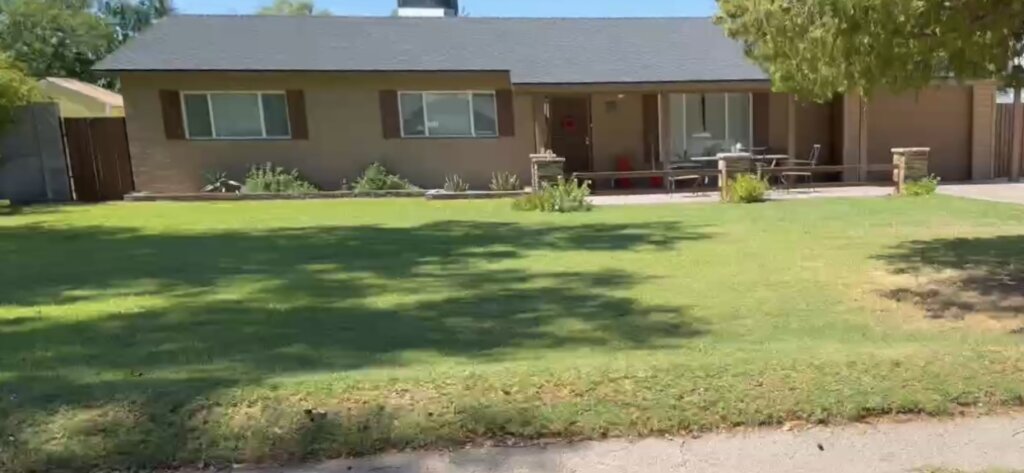
- Absentee Owners: If you’ve inherited a property in foreclosure, navigating the probate process and foreclosure simultaneously can be complex.
- Litigation: Properties tied to legal issues, such as bankruptcy or liens, can complicate and delay the sale. Make sure to have a clear title on the property.
- Selling Alone: Handling the sale as a For Sale By Owner without professional help can be overwhelming, especially under the pressure of an impending foreclosure. Consider working with a real estate agent or a cash buyer for a smoother process.
Five Alternatives to Selling Your Home in Foreclosure in Phoenix
Selling may not be the best option for you, especially if you have a new baby or are caring for an elderly relative at home. If selling is not your preferred option, consider these five alternatives to avoid foreclosure:
- Loan Modification: Negotiate with your lender to modify the terms of your loan to make payments more manageable.
- Refinancing: If you have enough equity and your credit score allows, you may be able to refinance your mortgage at a lower interest rate. Make sure to refinance before foreclosure takes place.
- Forbearance: Your lender may agree to temporarily suspend or reduce your payments if your financial hardship is temporary.
- Deed in Lieu of Foreclosure: You can voluntarily transfer the property deed to the lender to satisfy the mortgage debt and avoid foreclosure.
- Bankruptcy: Filing for bankruptcy can temporarily halt the foreclosure process and may allow you to catch up on payments.
Each of these options has its own pros and cons, and their viability depends on your specific situation. It’s important to explore all possibilities before deciding on a course of action. Time is of the essence, as you will want to explore alternatives first, so in the situation the options don’t work for you, you have time to properly sell the property.
Legal Considerations When Selling a House in Foreclosure
When selling a house in foreclosure in Phoenix, there are several legal considerations to keep in mind:

- Lender Approval: If you’re pursuing a short sale, you’ll need your lender’s approval to sell the home for less than what’s owed.
- Disclosure Requirements: Arizona law requires sellers to disclose certain information about the property’s condition to potential buyers. This is called a Seller’s Property Disclosure Statement or SPDS for short.
- Redemption Rights: In Arizona, there is typically no right of redemption after a non-judicial foreclosure sale.
- Tax Implications: Forgiven debt in a short sale may be considered taxable income. Consult with a tax professional about potential consequences.
- Deficiency Judgments: Arizona has anti-deficiency statutes that may protect you from deficiency judgments in certain circumstances.
It’s always advisable to consult with a real estate attorney familiar with Arizona foreclosure laws to understand your rights and obligations fully. This should be your second call after speaking with your lender or bank.
Check out this link on how to find an attorney in your state on ConsumerFinance.
Working with Patriot Flip to Sell Your House Fast in Phoenix
When facing foreclosure, being timely is crucial. This is where companies like Patriot Flip can be invaluable. Patriot Flip specializes in buying homes quickly in Phoenix, even those in foreclosure.
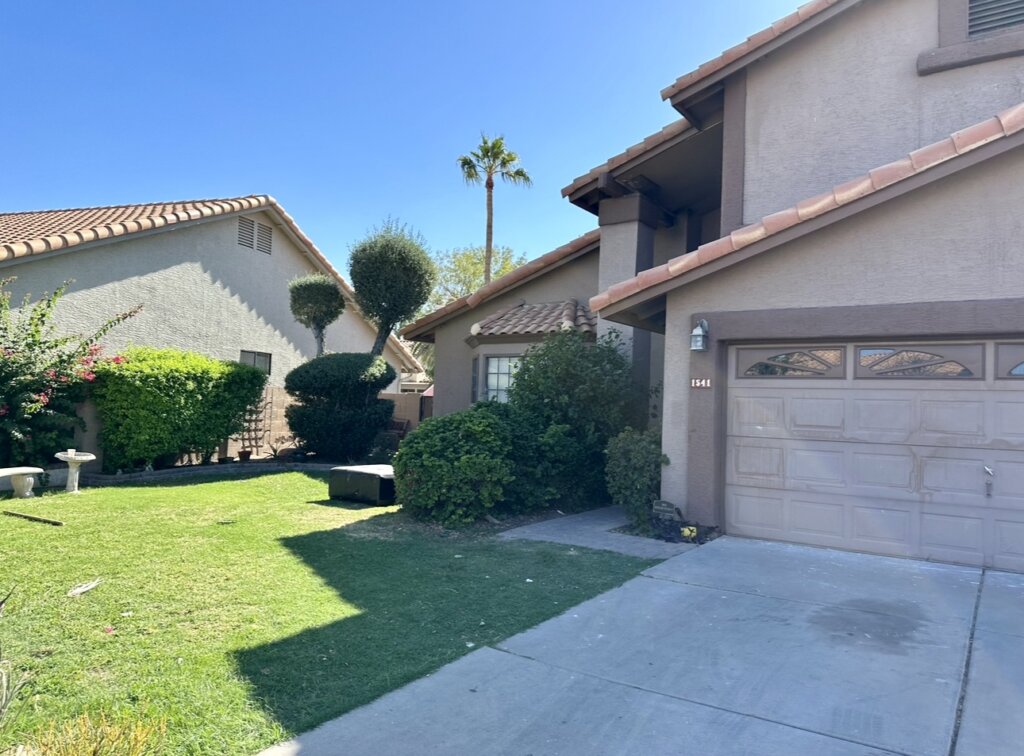
Here’s how working with Patriot Flip can help you avoid foreclosure:
- Speed: Patriot Flip can often close on a house in as little as 7 to 10 days, which is crucial when you’re racing against the foreclosure clock.
- Simplicity: They buy houses “as-is,” meaning you don’t need to worry about repairs nor renovations.
- Certainty: With a cash offer, you don’t have to worry about buyer financing falling through or needy requests.
- No Extra Costs: There are no real estate agent commissions or closing costs to pay.
- Expertise: Patriot Flip has experience dealing with foreclosure situations and can guide you through the process.
To get started with Patriot Flip, simply reach out for a no-obligation cash offer. They’ll assess your situation, provide a fair offer based on your home’s condition and the current market, and can often close the sale before your foreclosure auction date.
Download Your FREE Stop Foreclosure Guide Below
Related Foreclosure Resources & Questions
Are their counselors or government help I can speak to?
Yes, “You can use the CFPB’s “Find a Counselor” tool to get a list of counseling agencies in your area that are approved by the Department of Housing and Urban Development (HUD). You can also call the HOPE™ Hotline.”
Can I Sell My Home in Pre-Foreclosure?
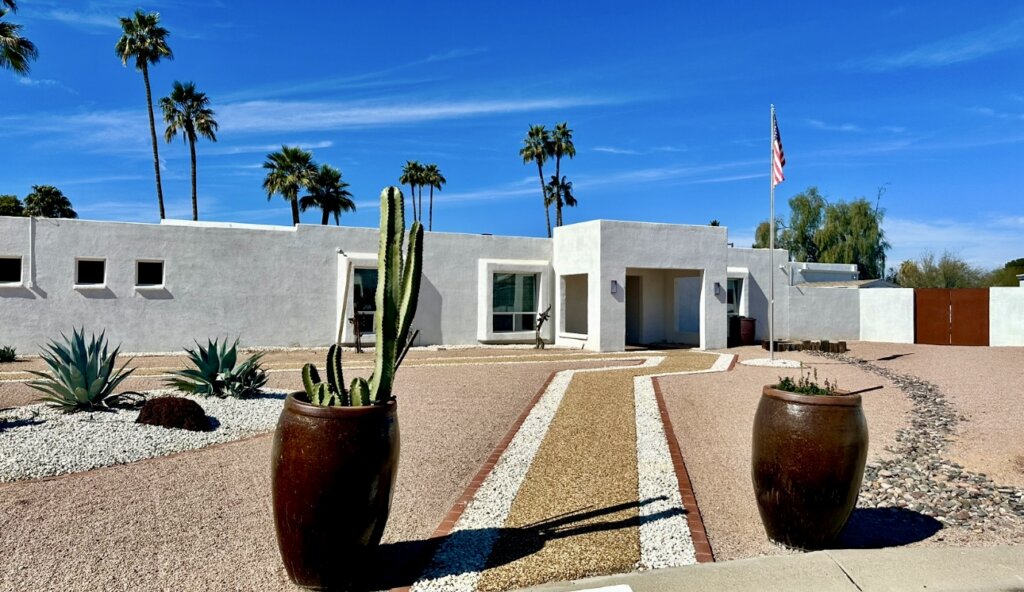
Yes, selling during pre-foreclosure is recommended as this is when you will still have the most control on your outcome. The more time you have to properly market the home, the higher your chances are to get a fair and reasonable offer. You could even be in a situation where you get multiple offers, depending on the strength of the market. The point is to avoid the pressure of an imminent auction.
Will I Owe Money After a Foreclosure Auction?
It’s possible to owe a deficiency balance if the auction sale does not cover the mortgage debt. The lender may pursue legal action to recover this amount, potentially resulting in wage garnishment or asset liens. Selling before foreclosure can help you avoid this scenario. The sooner you have a conversation with the lender or bank, the better your chances of successfully getting out from under foreclosure.
Can I Sell to Cash Home Buyers?
Yes, cash home buyers are often ideal for foreclosure sales due to their ability to close quickly and buy properties as-is. While the offer may be below market value, the speed and simplicity of the transaction can be beneficial in avoiding foreclosure.
Conclusion: Act Quickly to Avoid Foreclosure in Phoenix
Facing foreclosure on your Phoenix home is undoubtedly stressful, but it’s important to remember that you have options. Selling your house, whether through a traditional sale, short sale, or to a cash buyer like Patriot Flip, can help you avoid the severe consequences of foreclosure.
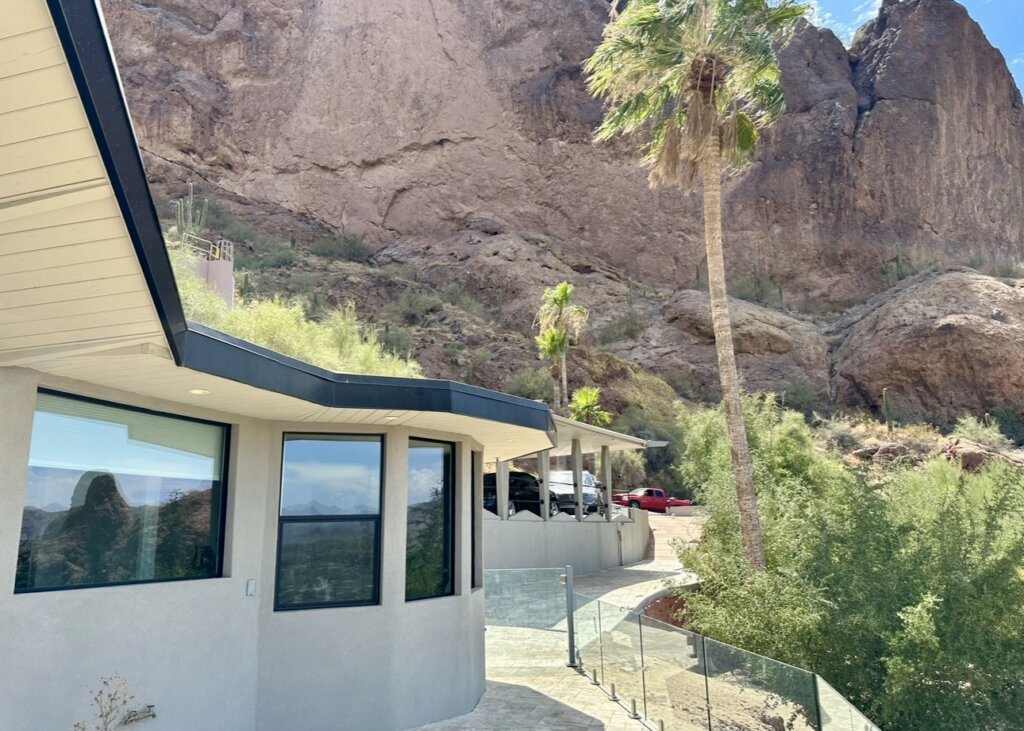
The key is to act quickly. The sooner you start exploring your options, the more choices you’ll have available. Don’t wait until the last minute to take action. Reach out to your lender, consult with a real estate professional, or contact a cash buyer like Patriot Flip to understand your options and make an informed decision.
Remember, a foreclosure on your credit report can have long-lasting impacts on your financial future. By taking proactive steps to sell your house or explore alternatives, you can minimize the damage and start rebuilding your financial life sooner.
If you’re facing foreclosure in Phoenix and need to sell your house fast, don’t hesitate to reach out to Patriot Flip. Their team of experts can provide a no-obligation cash offer and guide you through the process of selling your home quickly, helping you avoid foreclosure and move forward with your life.
- Short Sale vs Foreclosure – What’s the Difference in Phoenix?
- Understanding Closing Costs in Arizona
- How to Get Rid of Bad Tenants in Arizona
- Listing Expired: How Can I Sell My House in Arizona?
- Selling a House in Probate Arizona [House Probate Sale]
Cash Home Buyers Arizona

Author: Mark St. Peter
Mark St. Peter is a real estate professional with extensive experience in real estate investing, real estate sales and building businesses. He’s covered real estate across northern California, as well as Arizona.
Mark founded Patriot Flip to assist homeowners looking for alternative solutions for selling a property, rather than going the traditional route of paying commission, hidden fees and long waiting times.
